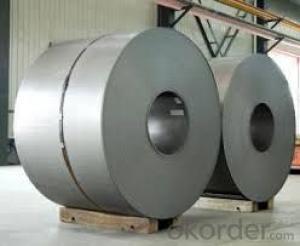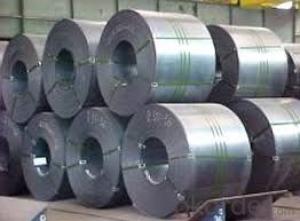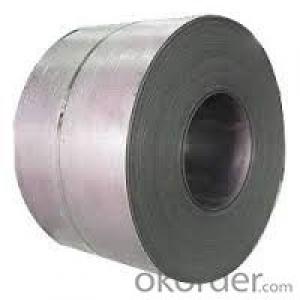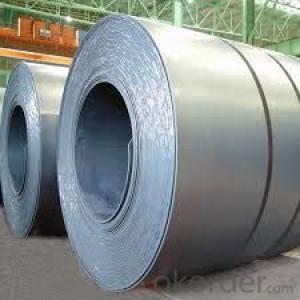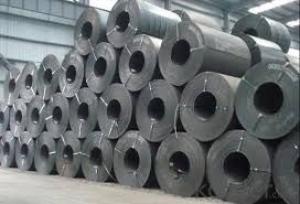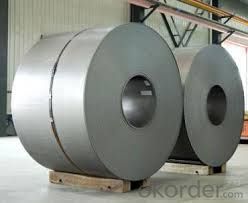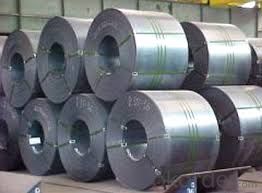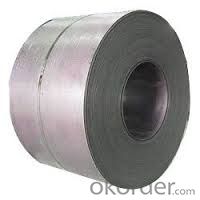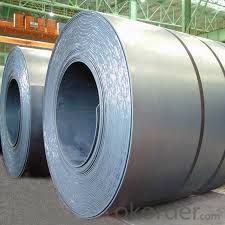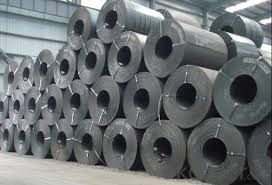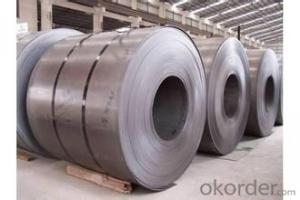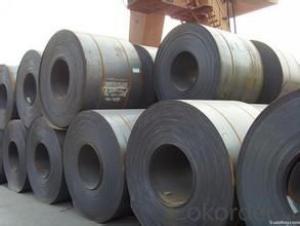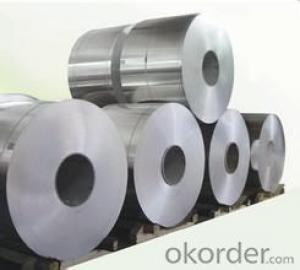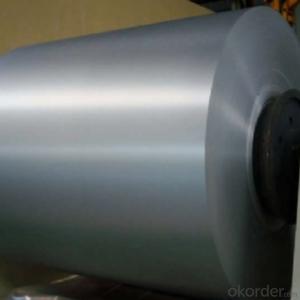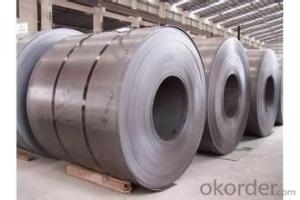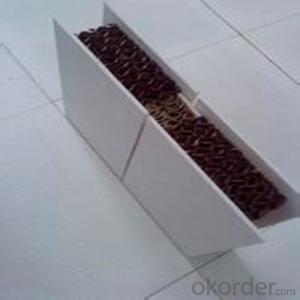hot rolled steel sheet - SAE 1006/1008
- Loading Port:
- China main port
- Payment Terms:
- TT OR LC
- Min Order Qty:
- 30 m.t.
- Supply Capability:
- 500000 m.t./month
OKorder Service Pledge
OKorder Financial Service
You Might Also Like
Product Description:
Rolled to its final dimensions while it’s hot enough to scale, our hot-rolled steel is an amalgamation of the various qualities of steel. It can be in the form of plates, sheets and coils.
Description:
Product: | Hot Rolled Steel Coils/Sheets |
Material: | Q195,Q235,A36,SS400,S235JR,Q345,ST37-2, CCSB etc |
Standard : | JIS G3002 GB/T251B |
Technique: | hot rolled |
Thickness | 1.2mm to 200mm |
Tolerance of thickness: | :+/-0.03mm |
Width: | 750mm-2000mm |
Tolerance of width: | :+/-5.00mm (aiming to +/-2.00mm) |
Normal width: | 914mm, 1000mm, 1200mm, 1219mm, 1250mm,1500mm |
Length: | According to requirement |
Coil ID: | 508mm-610mm |
Coil Weight: | 10-25 Metric Tons |
Surface: | Black, Chromate, fingerprint resistant treatment, slight oiled or non-oiled, dry |
Port of Loading: | Tianjin/Shanghai port |
Packaging Details: | Standard export packing or according to the clients required |
Delivery Time | Within 30 days after received 30% deposit or workable L/C |
Payment Terms: | L/C,T/T |
Image:
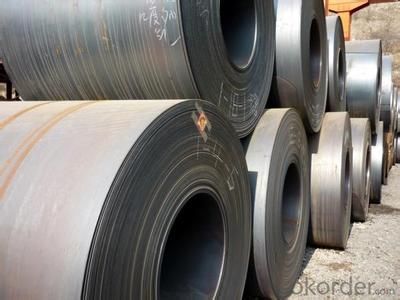
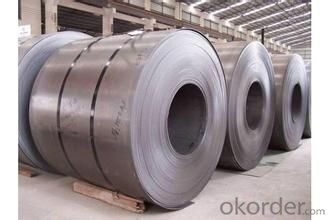
Our Hot-Rolled Steel Sheets and Coils are applied to a wide range of uses such as automobile, electrical appliance, machinery manufacturing, container manufacturing, shipbuilding, bridge, pipeline, and receive high acclaim from our customers for its excellent quality.
- Q: Can steel sheets be used for making shipping containers?
- Yes, steel sheets can be used for making shipping containers. In fact, steel is the most commonly used material for constructing shipping containers due to its strength, durability, and resistance to various weather conditions and environmental factors. Steel sheets are typically cut, bent, and welded together to form the walls, roof, and floor of the container. This construction method ensures that the shipping container is sturdy and capable of withstanding the rigors of transportation, including stacking, lifting, and exposure to harsh marine environments. Additionally, steel containers are easily customizable and can be modified to meet specific requirements for cargo storage and transportation.
- Q: What is the difference between a painted and laminated steel sheet?
- Both a painted steel sheet and a laminated steel sheet belong to the category of steel sheets, but they offer distinct characteristics and applications. A painted steel sheet is a sheet of steel that has been coated with a layer of paint. This layer of paint serves two purposes: it protects against corrosion and enhances the sheet's appearance. The paint can be customized in terms of color and finish, allowing for versatility in design. Architectural applications, such as roofing, siding, and wall cladding, as well as the automotive and appliance industries, commonly utilize painted steel sheets. However, it is important to periodically maintain the paint layer to ensure its durability and appearance. On the other hand, a laminated steel sheet is created by bonding multiple layers of materials together. Typically, it consists of a steel core and one or more additional layers, such as plastic, polymer, or resin. The lamination process significantly strengthens and enhances the durability and performance of the steel sheet. These laminated steel sheets are highly resistant to impact, scratching, and chemical exposure, making them suitable for applications that require superior mechanical strength and protection. Industries such as transportation, construction, and industrial equipment manufacturing often utilize laminated steel sheets. Additionally, the laminate layers can provide added functionalities such as sound insulation, thermal insulation, or fire resistance. In conclusion, the main distinction between painted and laminated steel sheets lies in their composition and intended purpose. Painted steel sheets prioritize aesthetics and corrosion protection, while laminated steel sheets prioritize strength, durability, and specialized functionalities. The choice between the two depends on the specific requirements of the given application.
- Q: What is the process of applying anti-fingerprint coatings to steel sheets?
- The process of applying anti-fingerprint coatings to steel sheets typically involves several steps. First, the steel sheets are thoroughly cleaned and degreased to remove any dirt or oil residue. This step is crucial to ensure proper adhesion of the coating. Next, a primer or base coat is applied to the steel sheets. This coat helps improve the bonding between the steel surface and the subsequent layers of the coating. After the base coat, the anti-fingerprint coating is applied using various methods such as spraying, dipping, or roll coating. This coating is designed to repel oils and fingerprints, making the steel sheets easier to clean and maintain. Once the coating is applied, the steel sheets are cured or dried according to the manufacturer's instructions. This step is important to ensure the coating fully adheres to the steel surface and develops its desired properties. Overall, the process of applying anti-fingerprint coatings to steel sheets involves cleaning, priming, coating, and curing to achieve a durable and effective solution for reducing fingerprints and smudges.
- Q: Are the steel sheets easy to transport and handle?
- Yes, steel sheets are relatively easy to transport and handle. They are typically compact and lightweight, making them convenient to move around. Additionally, their flat and rigid nature allows for easy stacking and loading onto transportation vehicles. However, larger and heavier steel sheets may require specialized equipment and machinery for safe handling and transportation.
- Q: What is the maximum load-bearing capacity of steel sheets?
- The maximum load-bearing capacity of steel sheets can vary depending on the specific type and thickness of the steel sheet. Generally, steel sheets are known for their high strength and durability, allowing them to support heavy loads. The load-bearing capacity of steel sheets is typically measured in terms of its yield strength or ultimate tensile strength. Yield strength refers to the maximum amount of stress that a steel sheet can withstand before it begins to deform permanently, while ultimate tensile strength refers to the maximum stress it can handle before fracturing. The load-bearing capacity of steel sheets can range from a few hundred pounds to several thousand pounds per square inch (psi). For example, mild steel sheets typically have a yield strength of around 50,000 psi, allowing them to support moderate loads. High-strength steel sheets, on the other hand, can have a yield strength of over 100,000 psi, enabling them to withstand heavy loads. It's important to note that the load-bearing capacity of steel sheets can also be influenced by factors such as the sheet's dimensions, surface condition, and the method of support. Additionally, engineers and structural designers often consider safety margins and factor of safety when determining the maximum load-bearing capacity of steel sheets in specific applications. Therefore, it is recommended to consult relevant engineering standards, specifications, or professionals for accurate load-bearing capacity information in a particular context.
- Q: What are the different methods of joining steel sheets?
- There are several methods of joining steel sheets, including welding, riveting, bolting, and adhesive bonding. Welding is one of the most common methods, where the steel sheets are heated to melting point and fused together. Riveting involves using metal fasteners to join the sheets, while bolting uses screws or bolts. Adhesive bonding involves using specialized adhesives to bond the steel sheets together. Each method has its own advantages and limitations, and the choice depends on factors such as the application, material thickness, and desired strength.
- Q: Are steel sheets resistant to impact?
- Yes, steel sheets are generally resistant to impact due to their strong and durable nature.
- Q: What is the process of embossing steel sheets?
- The process of embossing steel sheets involves creating a raised or recessed design on the surface of the steel through the application of pressure. This is typically done using specialized machinery that presses the steel sheet against a patterned die or roller, causing the desired design to be imprinted on the surface. The steel sheet is carefully positioned and aligned with the die, and then pressure is applied to create the embossed pattern. This process can be used to enhance the aesthetic appeal, add texture, or improve the functionality of steel sheets for various applications.
- Q: Can the steel sheets be bent without cracking?
- Steel sheets have the capability to be bent without cracking. This capability relies on several factors including the type and grade of steel, the thickness of the sheet, and the bending process employed. As a general rule, steel sheets can be bent without cracking as long as the bending radius and angle fall within the recommended limits specific to the type and grade of steel being used. Furthermore, preheating the steel sheet before bending can further mitigate the risk of cracking. It is crucial to adhere to proper bending techniques and utilize suitable tools to guarantee successful bending of steel sheets without any cracks.
- Q: What is the average wind load capacity of steel sheets?
- The wind load capacity of steel sheets can differ depending on a range of factors, including sheet thickness, steel type, and the specific design and installation of the structure. However, steel sheets are renowned for their robustness and endurance, enabling them to withstand substantial wind loads. When it comes to roofing or cladding applications, steel sheets are typically engineered to meet precise wind load demands in accordance with regional building codes and standards. These standards take into consideration factors such as geographical location, building height, exposure category, and wind speed. Engineers and architects rely on calculations and simulations to determine the wind load capacity of steel sheets and analyze the forces exerted by the wind on the structure. They take various factors into account, including wind pressure, building orientation, surface area, and the shape and profile of the steel sheets. In conclusion, the average wind load capacity of steel sheets cannot be generalized due to the influence of numerous factors. It is essential to seek guidance from a structural engineer or building professional to establish the appropriate wind load capacity requirements for a specific steel sheet application.
Send your message to us
hot rolled steel sheet - SAE 1006/1008
- Loading Port:
- China main port
- Payment Terms:
- TT OR LC
- Min Order Qty:
- 30 m.t.
- Supply Capability:
- 500000 m.t./month
OKorder Service Pledge
OKorder Financial Service
Similar products
Hot products
Hot Searches
Related keywords
